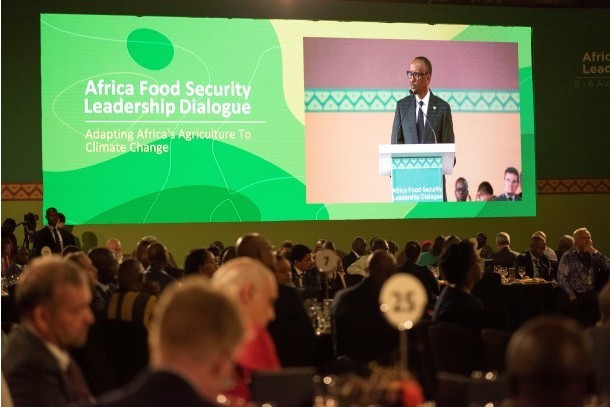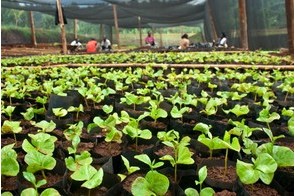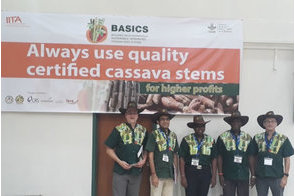World Bank, AU, others commit to end hunger and malnutrition in Africa

Summary
The African Union signed a deal with four multilateral development organisations to adapt Africa’s agriculture to climate change and sustainably increase productivity, enhance resilience and reduce food loss and waste.
The African Union (AU) has been joined by four multilateral development organisations to formalise their commitment to jointly work toward addressing food and nutrition security in Africa. The AU signed a deal with the organisations comprising the World Bank, United Nations Food and Agriculture Organisation (FAO), African Development Bank Group (AfDB) and the International Fund for Agricultural Development (IFAD) to reinforce their commitment to end hunger and malnutrition on the continent.
The agreement was signed on Monday at the Africa Food Security Leadership Dialogue, which held on August 5-6 in Kigali, Rwanda. Under the agreement, the signatories will work within a food system framework to adapt Africa’s agriculture to climate change and sustainably increase productivity, enhance resilience and reduce food loss and waste, while enhancing management of land, soil, water and biodiversity.
The agreement also formalises cooperation to implement the decision on agriculture and food security under the framework of the Malabo Declaration on Accelerated Agriculture Growth and Transformation adopted in 2014 by the Assembly of the AU to end hunger in Africa by 2025.
“Of the 50 most food-insecure countries in the world, 31 are African countries. Therefore, we need to take specific actions for our continent to ensure food security,” Gilbert Houngbo, IFAD’s President, said.
According to the President of Rwanda, Paul Kagame, Africa is off-track with the Malabo Declaration as undernourishment has been rising again in many African countries. “Undernourishment will negatively impact children throughout their lives,” President Kagame said. “The entire human development agenda in Africa is at risk if this trend is left unchecked.”
FAO said Africa's food and agriculture sectors are among the most vulnerable to the negative impacts of climate change. Smallholder farmers, small entrepreneurs, and their families, whose livelihoods depend on rain-fed agriculture, are most threatened by climate change. Therefore, building resilience is among FAO's key development priorities in Africa.
Resilience against multiple threats, including climate change, is a key prerequisite for sustainable development, in particular when it comes to the challenge of feeding over two billion Africans by 2050, FAO said.
"Farmers have always been innovators. What they need are policies that protect them and increase their resilience to climate change. They need access to information, technology, and investment, and they should be brought to the conversation on innovation," FAO's Deputy Director-General Maria Helena Semedo said.
The Africa Food Security Leadership Dialogue convened ministers of agriculture and finance, heads of international institutions and regional economic commissions, Nobel laureates and eminent scientists.
Related
-
Uganda's Grainpulse receives $11 million from IFC to support farmers
The investment will enable Grainpulse to support its expansion and increase food production in Uganda.
-
Bill & Melinda Gates Foundation supports high quality cassava seeds business in Nigeria
Researchers say the adoption of high-quality cassava stems for cultivation could raise productivity by at least 30%.
-
How indigenous foods can combat malnutrition in Africa
Supporting the profitability of local agriculture is essential in diversifying African economies and fostering growth .










